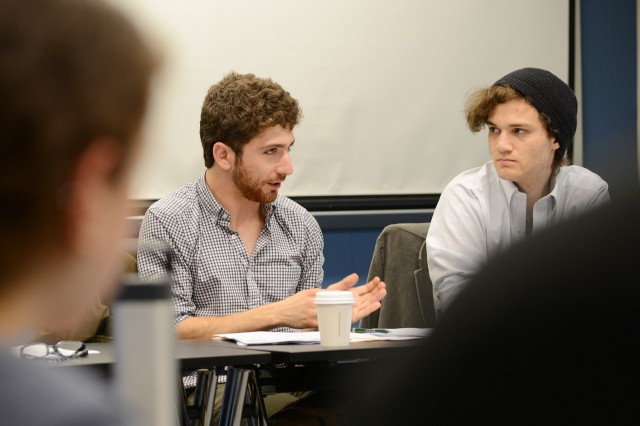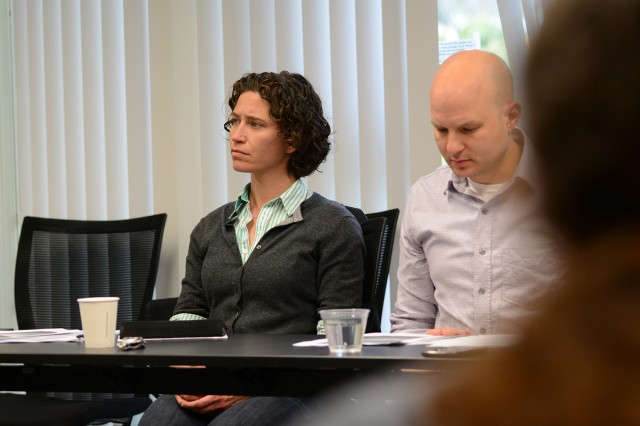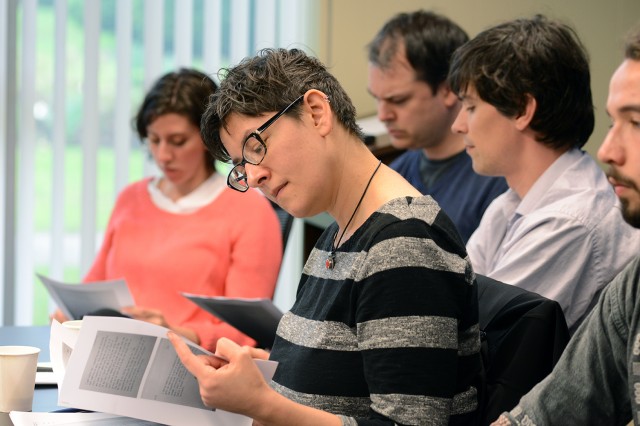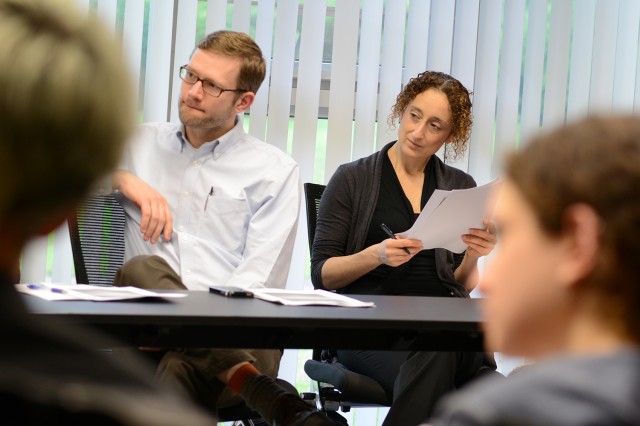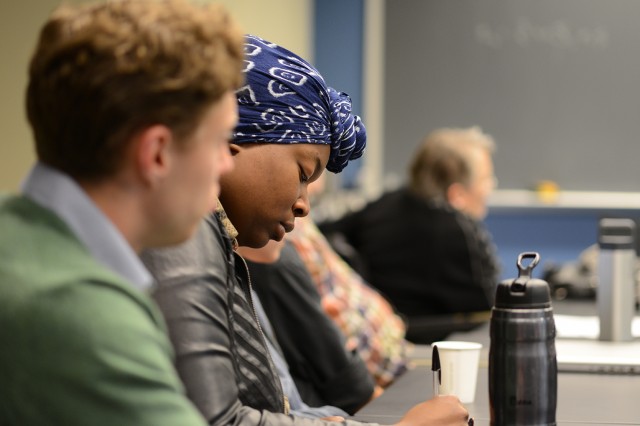Faculty, Students Discuss Milgram’s “Shock” Experiment Research at Humanities Theory Salon
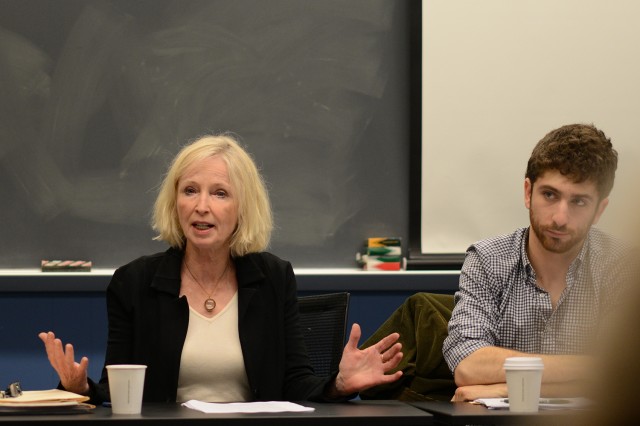
On Friday, May 9, the Center for Humanities held its last theory salon for the 2013-2014 academic year. The intimate faculty-student presentation revealed ground-breaking research on the Stanley Milgram “shock” obedience experiment, led by Jill Morawski, the Wilbur Fisk Osborne Professor of Psychology, professor of science in society, professor of feminist, gender and sexuality studies, and assistants Ethan Hoffman ’14 and Nick Myerberg ’14.
Stanley Milgram, a psychologist from Yale University, is known for his experiment on obedience to authority figures. In the 1960s, Milgram measured the willingness of participants to obey an authority figure who instructed them to perform acts conflicting with their conscience. In the experiment, a subject is asked to deliver painful electric shocks to a learner, who is actually and actor. The subject believes the learner was receiving shocks, however there was no physical pain inflicted on the learner.
“Body Resistance: Mapping Power and Defiance in the Milgram Experiments” re-imagines the ways in which dissonance, power, and human behavior are taught and thought about. Rather than challenge the extent of Milgram’s contributions and their applications, the team was more interested in using archival information—largely based on Milgram’s observational notes and recordings—to analyze previously overlooked nuances. Much of the research draws on the construction of agency and, as suggested by Hoffman, Milgram’s own suspicions.
“Milgram did a lot of double-talk,” Hoffman explained, “and this led us to believe that he was attentive to the problematic nature of the work.”
Interest in these classic findings has been persistent throughout the years and, recently, is becoming more interdisciplinary. Milgram’s findings have extended outside of the realms of social psychology and have incited studies in cognitive psychology, neuroscience and legal theory.
“There is great demand for understanding behavior in terms of implicit attitudes,” Morawski said.
Hoffman and Myerberg were influenced by the recent scholarship that has examined validity and formality of Milgram’s research protocol. Borrowing largely from ideologies of Sharon Krause’s, professor and chair of political science at Brown University and actor-network theory, Hoffman and Myerberg decided to focus on how material situations can change and are contingent upon “worlds created within a laboratory setting.”
“We didn’t want to rely on traditional theorists like Foucault. We couldn’t get a full picture of how resistance works by doing that,” Myerberg said. “The researchers were primarily concerned with developing a new relational model that would examine forms of deviance within a “controlled” [laboratory] setting.”
“Psycho-analytical reactionary movements are also forms of resistance that are really under-appreciated and under-theorized,” Morawksi insisted. “The relationship between the individual and the social is also under-appreciated.”
Photos of the theory salon are below: (Photos by Olivia Drake)
